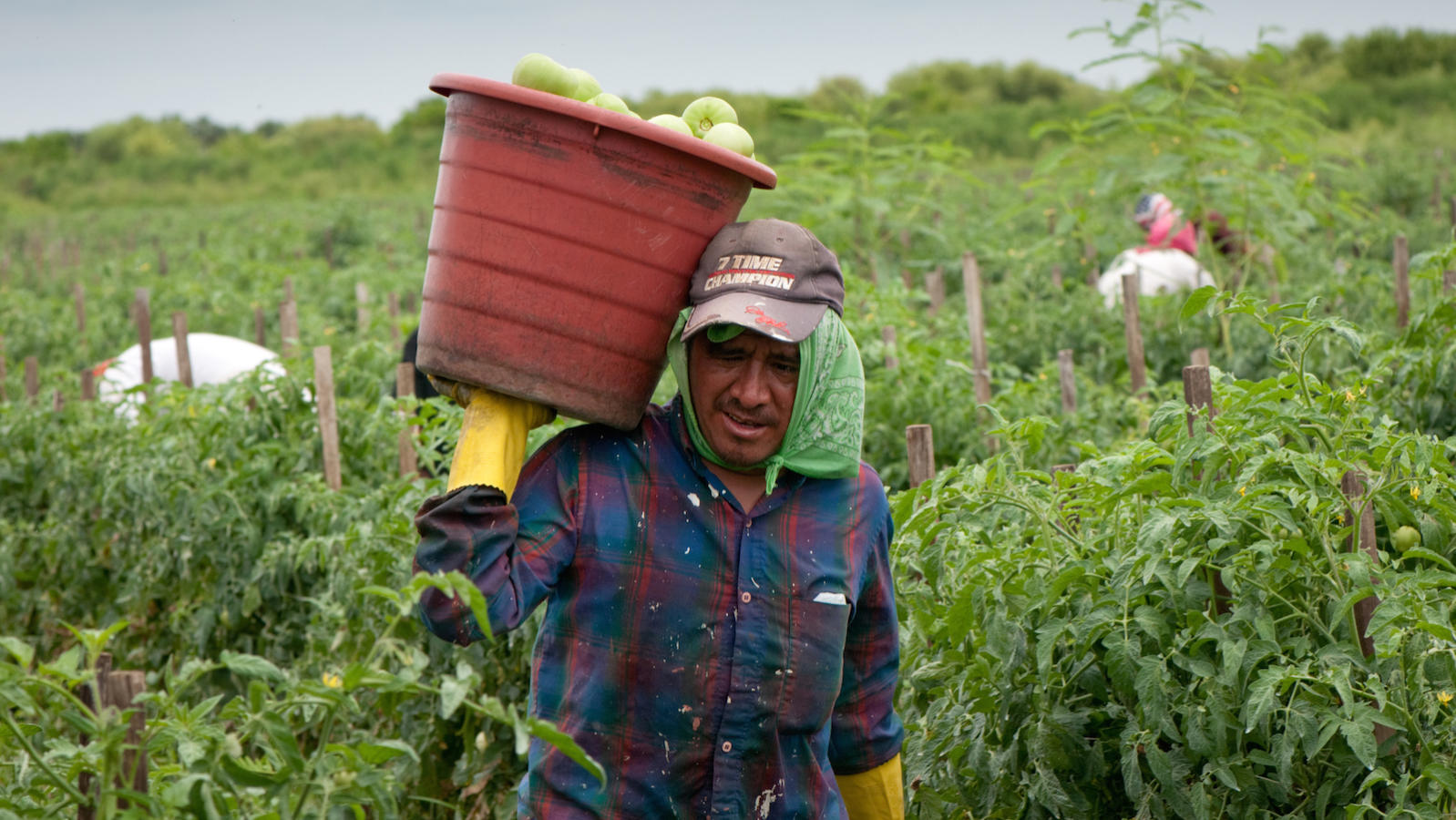Commentary on Parashat Vayetzei, Genesis 28:10-32:3
The bumper sticker on my brother’s car reads, “Everyone does better when everyone does better.” This statement brims with optimism: it is a vision of shared work and shared gain. Yet as I repeat this phrase, the terms begin to flicker: Is the “doing better” economic or moral? Who is considered to be part of “everyone?” Jacob finds himself part of a quotient of work and gain in this week’s portion that helps illuminate the nuance in this slogan.
Jacob is a migrant worker. He flees from a dangerous situation at home and takes refuge in Haran (Genesis 27:41-45). In this foreign area, he does arduous agricultural work for his uncle, Laban, who assumes the role of deceptive and abusive employer. Because Jacob arrives destitute, Laban easily takes advantage of him. From Laban’s perspective, this presents a wonderful opportunity for economic growth, both for himself and for his community.
According to Midrash, the Haranites are cognizant of this exploitation. Laban gathers everyone and reminds them that Jacob’s labor has improved their economic situation. “Do as you think fit,” the people respond. Laban then announces that he will dishonestly persuade Jacob to stay seven more years. “Do whatever you please,” they say (Bereshit Rabbah 70:19). The community tacitly encourages Laban. They believe that their prosperity will be multiplied collectively: Everyone does better when everyone does better.
Exploitation & Rights
Millions of migrant workers today suffer the consequences of this thinking. They are exploited in much the same way as Jacob, and this exploitation is supported by the communities around them–either explicitly or implicitly. In Thailand, Burmese immigrants work long hours for little pay in unsafe, abusive environments. In the U.S., Mexican-born farm workers toil in dangerous conditions, and many earn incomes below the poverty level. Powerful nations reap the benefits, gaining a flexible labor supply and avoiding social costs of health care, fair wages and overtime pay. Our country, and each one of us, depends on migrant work being done cheaply across the globe.

Help us keep Jewish knowledge accessible to millions of people around the world.
Your donation to My Jewish Learning fuels endless journeys of Jewish discovery. With your help, My Jewish Learning can continue to provide nonstop opportunities for learning, connection and growth.
This system is possible because migrant workers, like Jacob, are perceived as marginal, invisible. They are not part of “everyone.” Because rights are not granted or acknowledged, the migrant worker has no recourse and must accept whatever horrendous situation an employer offers.
This story takes the optimism out of what I originally thought was a buoyant bumper sticker. Yet Jewish tradition responds. It condemns exploitation such as that experienced by Jacob. Deuteronomy teaches, “Do not oppress the hired laborer who is poor and needy, whether he is one of your people or one of the sojourners in your land within your gates” (24:14-15). Our tradition mandates that we not exploit workers–foreign or domestic. As employers, we must embrace ethical labor practices. Our tradition is telling us to read the slogan differently: to “do better” is to act in a moral way. In this case, when we act ethically, we improve ourselves: Everyone does better when everyone does better.
When Greed Trumps Morality
Secular labor law similarly concedes that treatment of workers is primarily a moral issue. This is evident in the language of the International Convention on the Protection of the Rights of All Migrant Workers and Members of Their Families (ICMW). This document focuses on human rights and “the inherent dignity of every human person,” rather than on economic concerns. Yet it is telling that only 27 countries have ratified the ICMW, none of them major migrant worker-receiving states. Greed is trumping morality in our world. Migrant workers in our own country and across the globe lack basic legal protections.
Unless we actively defend the rights of migrant workers, we are as complicit as the residents of Haran in the suffering of others. We cannot expect the millions of migrant workers to be their own advocates–their situations make them highly vulnerable, leaving them with too much at stake. Jacob is unable to effectively challenge Laban until he is independently wealthy, a mere fantasy for most migrant workers.
From the perspective of economic greed, it may seem wise for us to turn a blind eye and let this unjust tradition of exploitation continue. But perhaps there is a reason it is our own ancestor who was exploited, a role that has repeated itself in other places in Jewish history. It is incumbent upon us to speak out on behalf of migrant workers, the collective descendants of Jacob’s experience, domestically and internationally.
Provided by American Jewish World Service, pursuing global justice through grassroots change.



